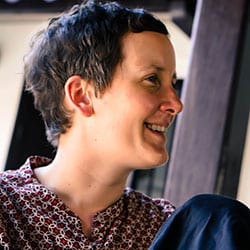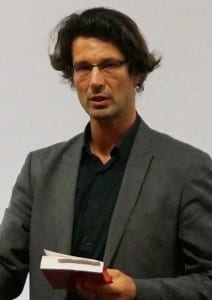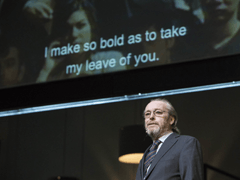The Septuagint and its role in the birth and spread of Christianity
By ucyow3c, on 22 January 2015
![]() Written by Wenqing Peng, UCL Arts & Humanitites PhD student
Written by Wenqing Peng, UCL Arts & Humanitites PhD student

Credit: James Shepard.
The Septuagint, or the Greek translation of the Hebrew Bible, plays a crucial role in the spread of Christianity into a world religion, from its roots as a minor Jewish sect. Dr. Aleksander Gomola (Jagiellonian University) presented a range of illustrations of the nuances in translation that influenced the writers of the New Testament and the subsequent direction of Christianity itself.
In the first part of the talk, Dr Gomola examined the legend and fact of the Septuagint (LXX): a koine Greek version of the Hebrew Bible. The legend of the translation is found in the pseudepigraphic Letter of Aristeas to his brother Philocrates in the 2nd century BCE, which elaborated on the invitation by Ptolemy II Philadephus to 72 Jewish scholars to translate the first five books of the Hebrew Bible into Greek for the Library of Alexandria, and how they accomplished this feat in 72 days.
Dr Gomola then explained the significance of the relation between the LXX and Greek thought: the LXX revised the hierarchy of the Greek classics and the writings of Jewish patriarchs and prophets.
 Close
Close




